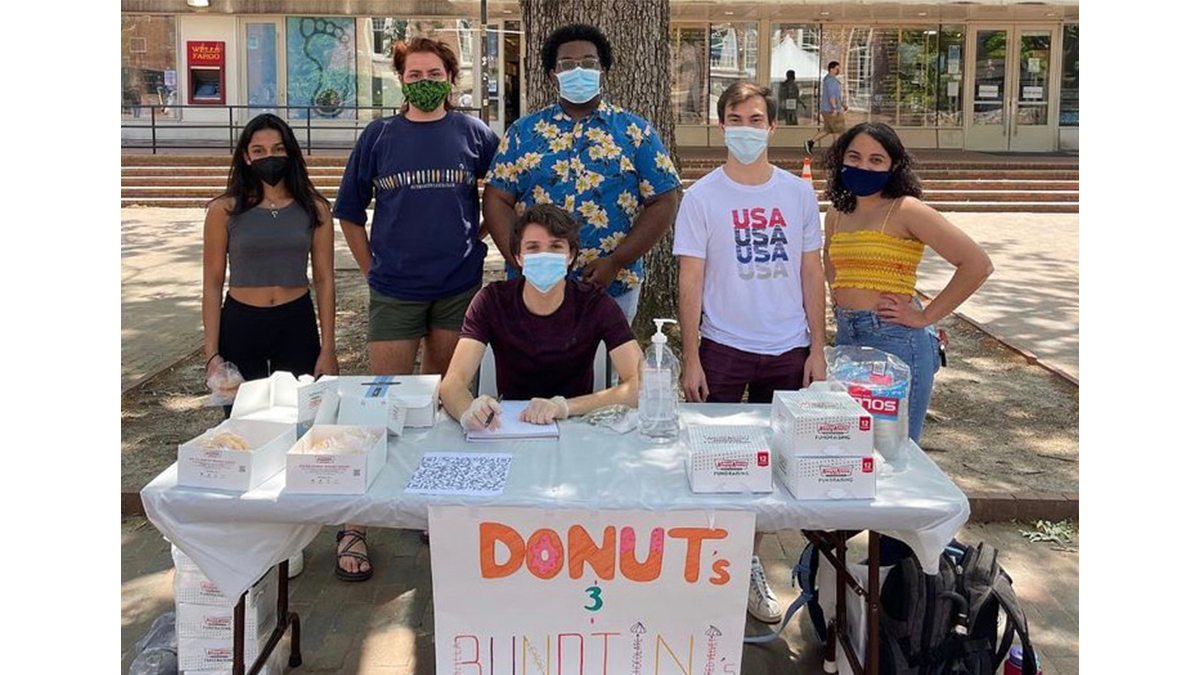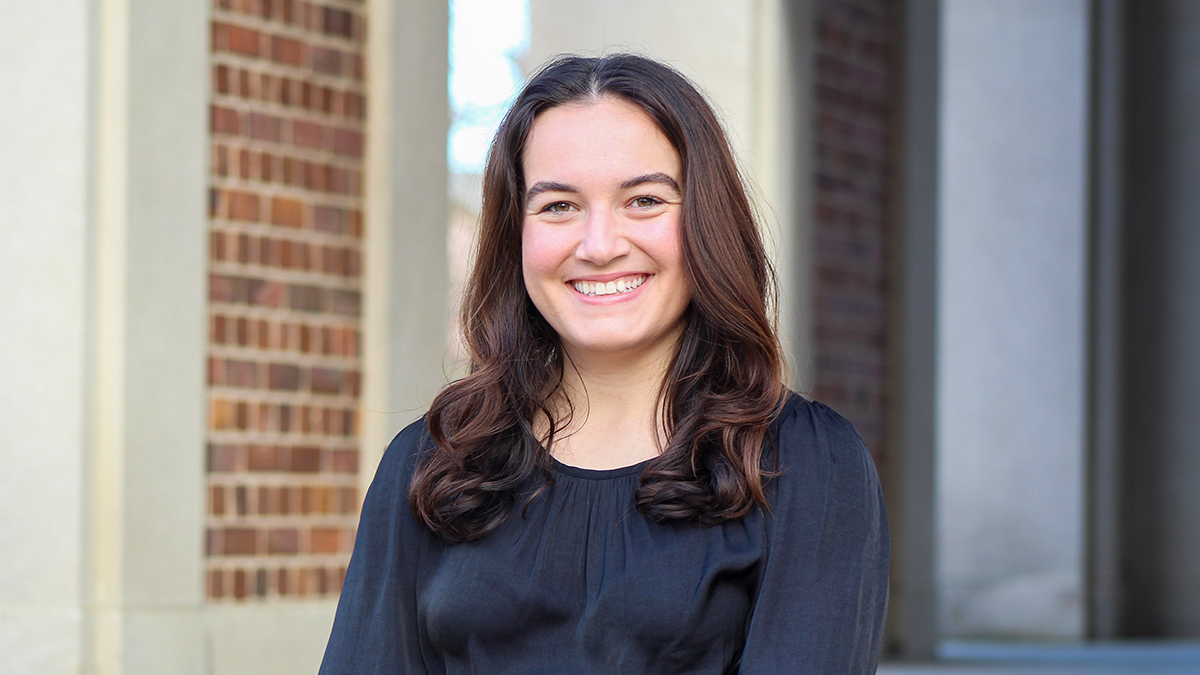Student group focuses on supporting cancer research, enhancing scientific careers
Carolina Cancer Association is a student organization focused on health care volunteerism, contribution to research and academia, and spreading awareness about cancer and its widespread impact in every community.

A good backstory is something everyone can appreciate.
From superheroes in capes to those who work in research labs and clinics to save lives every day, they all had to start somewhere. And for a group of UNC-Chapel Hill undergraduates who aspire to become cancer doctors and researchers, their journey begins right here at UNC Lineberger Comprehensive Cancer Center.
The Carolina Med Society was founded by students Jonah Im and Tejas Pruthi as an organization for students studying biology to learn more about cancer and gain access to UNC Lineberger’s resources. The group continued to evolve, becoming the Carolina Cancer Association, and biology and biochemistry student Sloane Fussell tapped his experience with patients and personal connection to cancer to help grow the group’s mission beyond the initial idea.
“When we founded it, it was an organization that was driven by biology students interested in cancer. It was focused on science and the pre-med aspect,” said Fussell, the outgoing president. “As we started to grow, and we got involved in volunteering, we saw the patients impacted by cancer and saw the need out there, so we delved into fundraising. We saw the need was larger than what was being put out.”
“We are a collegiate driven effort to be the next fighters against cancer and help the community,” said Amber Amparo, the group’s president.
The group’s fundraising efforts, led by then-chairperson Amparo and a team of students, centered on crowdfunding and other smaller initiatives. During the past three years, the group has been driving interest in support for cancer research and oncology among their peers, and they were able to raise more than $7,000 to benefit UNC Lineberger in 2020, despite the pandemic.
The funds were split between the Comprehensive Cancer Support Program, which provides cancer patients in need with assistance like gas cards to pay for fuel to and from appointments, and the Adolescent and Youth Cancer Program, which works to address the unique needs of patients ages 13-39.
The group could readily identify with those needs, and the team was fortunate to find like-minded student participants and donors among them. “It’s a team effort; all of our events are team-driven. It’s a community within a community,” Amparo said. “We all work hard, and we’re passionate about what we do.”
“It’s all about the impact, and it has a personal connection,” Fussell said. “I want to be an oncologist or scientist, and my mom went through cancer. We want to make an impact so others can be in a better position than I was in.”
And even with the new school year yet to start, Amparo is already thinking about fundraising activities for the fall and following in Fussell’s footsteps as the president of the association.
“I’ve been fundraising for a really long time. It’s my favorite thing to do in life. You have to be the hype man, and if something is not successful, you motivate donors and team members in a way that’s different the next time,” Amparo said. “The biggest reward is knowing the impact you have and saying ‘we did this together, and we had this impact.’ Truly fulfilling our mission in that way is rewarding.”
The Carolina Cancer Association is helping the community but also helping students realize their scientific dreams along the way. Fussell said part of his goal with the group was to help students connect with opportunities at UNC Lineberger and continue to spread awareness. UNC Lineberger’s Al Baldwin, the faculty advisor for the group, said working with groups like this helps further the cancer center’s career education efforts and outreach.
“They really have a focus on their careers, and this motivation is all from them. They came to me and said how can we help Lineberger? How can we raise the money?” Baldwin said. “I think they’re just impressive.”
Baldwin and the cancer center do their part to enhance the students’ scientific education, coordinating speakers to talk to the group, helping with lab assignments and connecting the students with the gifted scientists and physicians at UNC Lineberger so they can shadow them in their work.
And the benefits for Fussell will be realized soon enough. In addition to helping cancer patients and their families through the organization he founded, he also has a few job offers coming his way after graduation, and most of them are from the National Institutes for Health, paving the way for a future spent pursuing science.




